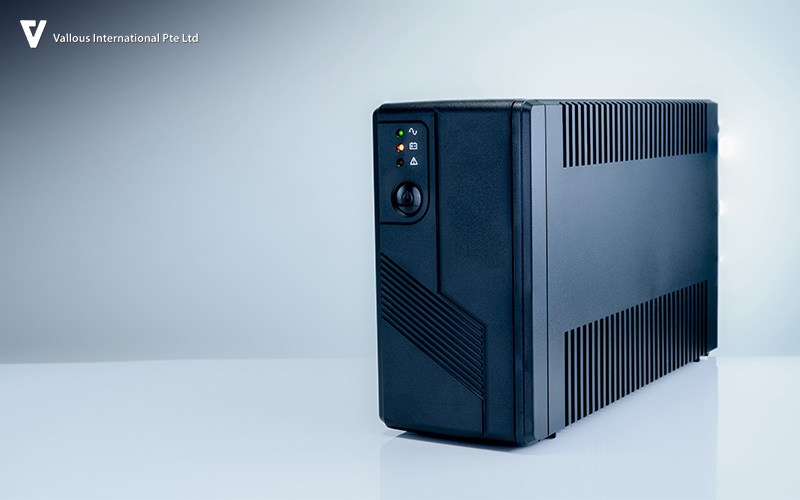
Key Takeaways:
What are the Common Types of UPS Power Batteries?
- Lead-Acid Batteries
- Lithium-Ion Batteries
- Nickel-Cadmium (NiCd) Batteries
What are the Key Functions of UPS Batteries?
- UPS batteries are essential for:
- Power backup
- Voltage regulation
- Surge protection
What are the Benefits of UPS Batteries?
- Prevent downtime
- Enhance equipment lifespan
- Energy efficiency
- Cost-effectiveness
- Energy storage
Introduction
Reliable power is essential for modern businesses, especially those that rely on mission-critical systems like data centres, medical equipment, and industrial automation. Even brief power disruptions can result in costly downtime, data loss, or equipment failure. In this context, UPS power battery systems provide a safety net, supplying instant, clean backup power when the main grid fails. Looking to upgrade an existing UPS power battery system or plan new critical power solutions? This guide will help you make future-ready decisions. Let’s dive into the types of UPS power batteries, their key functions, and long-term benefits.
What are Some Common Types of UPS Power Batteries?
Not all UPS systems are built the same. The performance, lifespan, and maintenance needs depend on the types of battery used. Explore these common options deployed across industries:
1. Lead-Acid Batteries
Lead-acid batteries are widely used in UPS systems for their cost-effectiveness and high power capacity. Short-term backup in environments like UPS data centre setups may find them useful. However, they generally have a shorter lifespan of around 3 to 5 years and require regular maintenance. In addition, they are also bulkier than more modern battery technologies.
2. Lithium-Ion Batteries
Lithium-ion batteries have become increasingly popular in modern UPS and battery systems. Offering a lifespan of 10 years or more, they dramatically reduce the need for frequent replacements. Their higher energy density means they take up less space and require less cooling, making them ideal for compact and scalable setups. Although the upfront investment is higher, their low maintenance requirements and long-term performance make them a smart choice for energy-efficient UPS systems.
3. Nickel-Cadmium (NiCd) Batteries
Designed for harsh environments, NiCd batteries excel in extreme temperatures and are more long-lasting than lead-acid alternatives. They’re mostly deployed in industrial or high-stress applications where robustness is critical. Nonetheless, these batteries are less common in general UPS use due to their higher cost and lower energy density compared to lithium-ion options.

What are the Key Functions of UPS Batteries?
A UPS power battery does more than just keep systems running during an outage. These are the primary functions that make them essential for any robust power protection strategy:
1. Power Backup
When the main power supply fails, the UPS power backup instantly kicks in, keeping core systems like servers, networking equipment, and safety systems operational. This split-second response ensures business continuity and minimises the risk of data loss.
2. Voltage Regulation
Fluctuating voltage can be just as damaging as power outages. Many UPS battery backup solutions include built-in voltage regulation, providing stable output and protecting sensitive equipment from irregular power conditions.
3. Surge Protection
UPS systems also play a part in protecting against power surges. These sudden spikes—often caused by lightning strikes or grid anomalies—can damage expensive electronics. A UPS battery helps absorb and neutralise these surges by diverting excess voltage through internal protective circuits.
What are the Benefits of UPS Batteries?
A quality uninterruptible power system and dependable battery setup process in Singapore is beneficial for organisations that rely on continuous power. Here’s a closer look at the advantages of installing an uninterruptible power supply system:
1. Prevent Downtime
Immediate backup power minimises interruptions, protecting productivity and revenue.
2. Enhance Equipment Lifespan
Stable voltage and surge protection reduce stress on your devices.
3. Energy Efficiency
Especially with lithium-ion options, today’s batteries support greener, energy-efficient UPS systems.
4. Cost-Effectiveness
Although some systems require more upfront investment, the long-term savings on maintenance and equipment replacement are significant.
5. Energy Storage
Batteries can store energy when the electricity demand peaks. This helps businesses lower electricity costs and support energy optimisation strategies.
How to Choose the Right UPS Power Battery in Singapore
With so many options available, selecting the best solution for your facility depends on your specific requirements. Before installing a UPS power battery, be sure to consider runtime expectations, space constraints, environmental conditions, and budget.
As a trusted provider of critical power solutions in Singapore, Vallous International offers expert consultation and scalable solutions to suit industries of all sizes. If you’re looking to implement a reliable system for your facility, our team is ready to guide you through the process.
Contact us for more information.